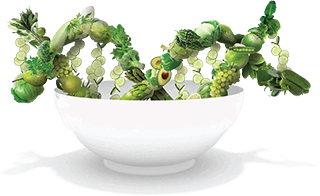Are you a food first person? Are you a supplement kind of person? Are you influenced by food or supplements because somebody suggested it to solve all your health issues? Do you take food and supplement information at face value without question?
Well, this week we’re looking at when to choose food versus a supplement. In case you missed this week’s live version, you can watch it above.
Before diving in, take note. For food or a supplement to do its thing, you need a digestive tract that’s healthy and working properly. Without that, your efforts would be wasted.
Let’s start with food.
The best types of diets include a variety of foods from unprocessed whole grains, fruits, vegetables, beans, and legumes while limiting sweets and added fats. Indeed, you need to be deliberate to get a variety of foods, in the right portion sizes, and consistently to meet all your nutrition needs.
A perfectly packaged food in nature has its constellation of nutrients to maximize absorption, usually without excess, which is exactly why, in most instances, the default is to choose food first.
A portion size may not meet nutrition needs. Yet, increased portion sizes can come with undesired effects. Take beans for example. They’re a good source of fiber and prebiotics for gut health but, to get the minimum 25 grams per day, you’d need 2 cups. If you don’t work up gradually to acclimate to the fiber content, you’ll experience gas, bloating, and discomfort!
Another example is in getting enough vitamin D. Vitamin D isn’t in much of anything except for fortified milk products and fatty fish like salmon. Can you imagine how much salmon you’d need to eat daily to meet your needs or to offset a deficiency? Then, there’s a problem if there’s a food that you know is good for you but you’re allergic or have an intolerance limiting you from including it in your diet at all.
Next, let’s take a look at the supplement route.
A general rule of thumb is the smaller the problem, the smaller the treatment. If you have something medically serious going on, a supplement may not correct it. In some circumstances, supplements can make the problem worse. Supplements are generally reserved for when there’s an actual deficiency or where we want to maximize a benefit, without excess. Three common issues arise with supplements:
- The supplement could have a substance your body doesn’t need, can’t recognize, or causes harm.
- Supplements frequently isolate a specific nutrient that doesn’t work as well as when it’s in concert with other nutrients and substances.
- If a supplement is doing its job, it still needs to be assessed regularly to see if changes are needed, if there’s a higher quality product, or if the research has changed. Don’t just take a supplement indefinitely without evaluating it every once in a while. Take the example of probiotics, which need to be rotated every 3 months or so or stopped for some time and then started back up to maximize their efficiency.
Lastly, there’s a sweet spot for supplementing that will work best. Taking just that much more may turn something that could have worked perfectly for you into something that’s causing a problem. At that point, you may scrap the product as not being good for you, but it is. Take the example of magnesium. A lot of people use magnesium to help them sleep – and it works – but get too much of it and you could end up with diarrhea (which won’t do for a restful evening). If you have an effect like diarrhea every time you take magnesium, are you really going to keep taking it? Maybe all that was needed is to back off on the dose and then it would work fine.
So, the final answer is that food and supplements both have their place. However, be aware of what you’re trying to accomplish and when you should consider taking it up a notch with a supplement. If you do decide to supplement, find the right form, in the right amount, and the best quality.
Don’t forget to join weekly live topics on Facebook, Tuesdays, 1:00 pm CT.

